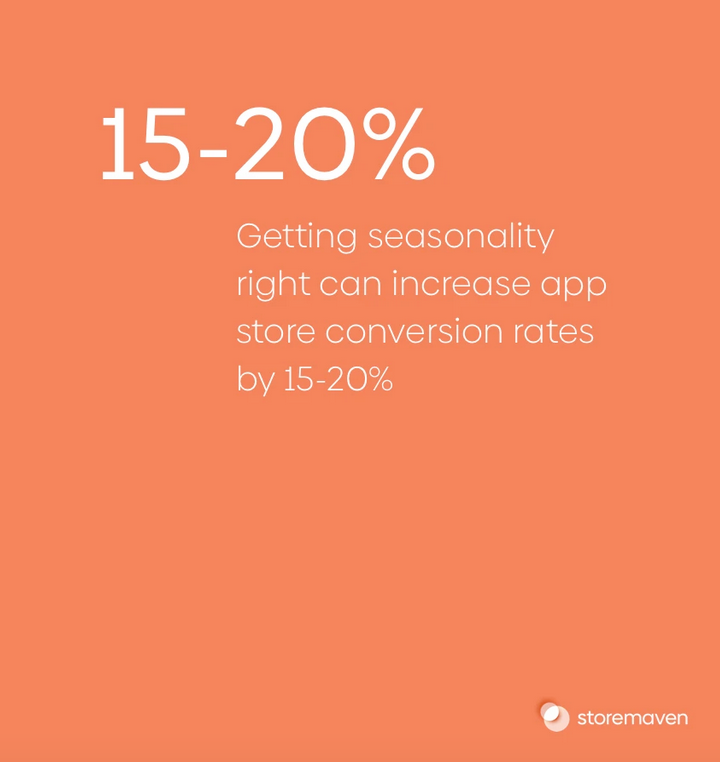How often should you update your app’s ASO metadata
App Store Optimization (ASO)
November 28, 2022
Your app’s metadata refers to all the elements (both images and texts) displayed on your app page in the stores. It includes the title, subtitle, keywords, and description but also your visual assets like your screenshots and video preview.
Why should you update your app metadata?
ASO isn’t something you do once when you launch your app. It’s a work in progress. Not only do the app stores update their algorithm and rules, and you will need to adapt your strategy to these changes, but it’s also incredibly important to adapt your metadata to keep your app as relevant as possible.
Here are some reasons behind the importance of updating metadata:
- Ensure a good ranking
- Adapt to users’ behavior and needs
- Go up against competitors
- Keep up with stores’ changes
- Keep your app relevant
- Take advantage of seasonality and events
Neither the app stores nor your audience is a fixed metric. They will evolve and you’ll need to update your metadata to keep up with those changes.
Aim for regularity
There is no one-size-fits-all for ASO metadata. Each app or mobile game has its own challenges and KPIs. Depending on your competition, your app genre, your brand recognition, your overall marketing strategy, etc, you will need to implement a different ASO strategy.
This is also why your ASO metadata needs to be updated regularly. The exact time frame is up to you, what’s important is to leave enough time to see the results of your previous metadata and keep a regular schedule.
Some of the bigger apps and games will update more frequently, because they have more data and more changes to implement. Others will take more time in order to ensure that their testing results are relevant.
Ryan Kelley, an ASO Consultant, advises a minimum of 1 month between updates. Quicker than that would be premature. He functions on a 3-month cycle but notes it’s important to always adapt to the app and avoid optimizing textual and visual metadata simultaneously.
Likewise, Elena Wibmer from App Radar emphasizes the need to implement changes one at a time. According to her, a big ASO mistake is to try and enforce too many modifications at once. Ensuring that each update is focused on one change helps “identify where the change in traffic, hopefully, the increase but whether the increase or decrease is coming from”.
Pay attention to your app and your audience, it will guide you to the best decision for your product.
The App Store and the Play Store have different expectations
As with all things ASO, there are slight but important differences between the App Store and the Play Store, and that impacts the timeframe in which you should update your metadata.
App Store
For Apple’s App Store, the general consensus is that updates need to be made monthly (roughly every 4 weeks). 4 weeks is usually the time needed for keyword rankings to stabilize, meaning you can get a clear picture of how your ASO strategy is performing and adapt accordingly.
Play Store
For Google’s Play Store, it takes a little longer for keyword ranking and indexation to take effect. This means that experts agree on a 6 to 8 weeks time frame instead of Apple’s 4 weeks.
Special occasions for metadata updates
Right after launch
While you optimized your app’s listing page before its launch, it’s good to update it after as well. Elizabet K from Asodesk suggests preparing your ASO at least a month before release, to give you enough time to research the market, the popularity of keywords, the visual assets trends, etc.
Even with all the preparation in the world, it’s hard to predict exactly what will work or not. This means it’s important to monitor your app in its first few weeks to figure out what needs changing and what doesn’t. Be careful, Apple tends to boost new apps for a week, so results might be stronger in the first week than the following ones. This also means that adjusting your metadata quickly may leverage stronger results. Meanwhile, Google does not so results will take longer to show.
Algorithm updates and new functionalities
App stores regularly update their algorithm. There’s usually at least one yearly major update and several minor changes during the year. ASO communities often share information about that in real-time to help everyone figure out what’s happening.
These changes can often affect your app’s ranking, which means actions need to be taken in order to shift things up again and ensure your ranking isn’t impacted too much.
Likewise, sometimes the stores will introduce new functionalities that can really help boost your app’s visibility. For example, Zofia Wietecka from Flo Health discovered that Apple’s custom product pages convert better than default pages. These new functionalities can bring a new round of ASO and metadata in order to try them out.
Shifts in the competition
The app world is a fast-moving industry with new players arriving every day. It’s useful to keep an eye on the competition in many ways, but it’s also relevant to your ASO strategy and how often you need to update it.
A newcomer could suddenly come for your ranking in a specific keyword and you’d need to assess whether it’s worth fighting back on that particular keyword or if it’s better to move on to another. Both choices imply an update in metadata.
Seasonal events
Seasonality is an important tool in app marketing, especially for ASO. Big events are a great opportunity for a metadata makeover, mostly visual assets. There’s a lot to be gained with a properly seasonalized store page.

Not just for celebrations, some trends could be happening in your locale that could warrant metadata updates to hope for a better ranking. For example, the pandemic boosted downloads for fitness and health apps.
Regular metadata updates will allow you to test things out and figure out the best path forward for your app or game. ASO is a long-term play that involves dedication and trials in order to yield results.
- Mobile Video Monthly #38 – November 2023 - 5 December 2023
- Disturbing ads, a new trend for mobile gaming creatives? - 28 November 2023
- The Power of Holiday Marketing in Boosting Mobile Game Engagement - 21 November 2023

